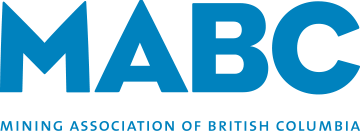VANCOUVER – The Mining Association of B.C. (MABC) acknowledges the release of the B.C. Government’s discussion paper on the revitalization of the B.C. Environmental Assessment (EA) Act.
B.C. has many advantages: an endowment of natural resources, a reliable and secure infrastructure, a world-class highly skilled workforce and ports that are strategically located for international markets. B.C. mines are leaders in forging agreements with First Nations partners, are widely respected for our standards in safety, and are among the world’s lowest in carbon intensity. However, global investors are paying close attention to B.C.’s regulatory climate to determine if the province is the best place for their mining investment. Mining projects and operations are capital intensive, multi-year commitments necessitating clarity, consistency, and co-ordination from governments for investors to deploy capital.
British Columbia’s existing EA process is widely recognized as an exemplary project assessment mechanism for its rigorous, transparent, inclusive, time-bound and measured evaluation of multiple impacts, and its diligent application, monitoring and enforcement of project conditions. EA is one step in a multi-staged permitting and approval process for mines in this province. MABC supports British Columbia’s objectives of increasing the public’s understanding and confidence in how decisions about resource development are made in British Columbia, of working in partnership with Indigenous peoples to advance reconciliation, and to supporting sustainable investment, job creation and economic growth for British Columbians across the province. MABC looks forward to continuing to engage with the government and other important stakeholders as the revitalization progresses.
“British Columbia has the opportunity to become a jurisdiction of choice for the metals and minerals we produce, further contributing to our low-carbon, clean-tech future,” said Bryan Cox, President & CEO of MABC. “However, this time-sensitive opportunity will only be realized if investor confidence in our regulatory processes is maintained. Any improvements to the EA process must focus on achieving clear, integrated and more predictable processes, and improving the attractiveness of British Columbia as a destination for mining investment. Keeping our focus on advancing reconciliation with Indigenous peoples and protecting the economic wellbeing of British Columbians will continue to set our sector apart.”
The B.C. mining industry is one of the largest employers of Indigenous peoples in the province and our companies have established unique and creative benefit sharing partnerships with dozens of different Nations in B.C. In addition, the government has entered into 34 Economic and Community Development Agreements (ECDAs) with 45 First Nations, sharing the mineral tax revenue from mining operations. BC is a leader in Canada, having pioneered ECDAs, and the rest of Canada is now paying attention. The Province of Ontario recently announced that they will soon begin sharing mineral tax revenue with First Nations.
“B.C.’s mining industry is leading the way when it comes to economic reconciliation with Indigenous peoples,” continued Cox. “By ensuring that responsible mining projects can continue to be built, we will ensure that Indigenous communities and all British Columbians continue to benefit, which has the opportunity to create generational change, all while responsibly extracting the metals and minerals that are essential to the global economy.”
For more information on B.C.’s mining industry, please visit www.mining.bc.ca


